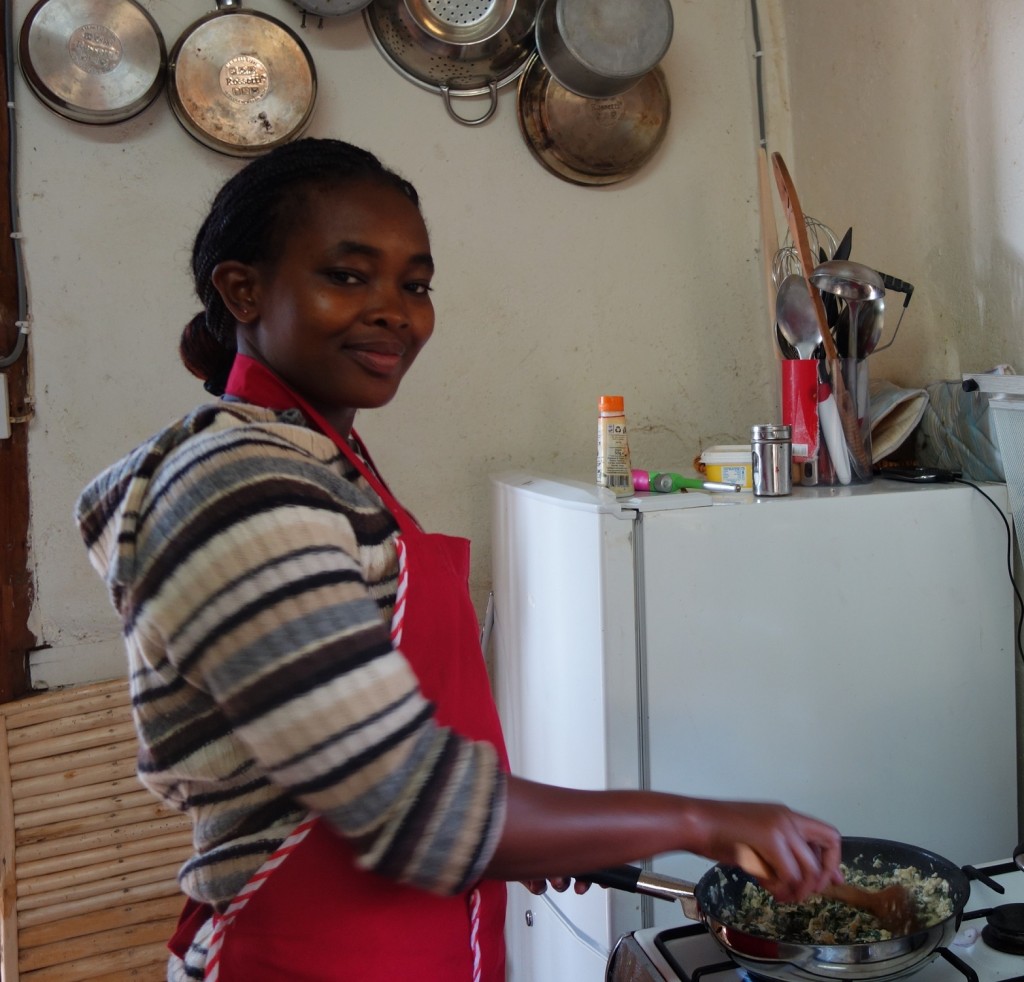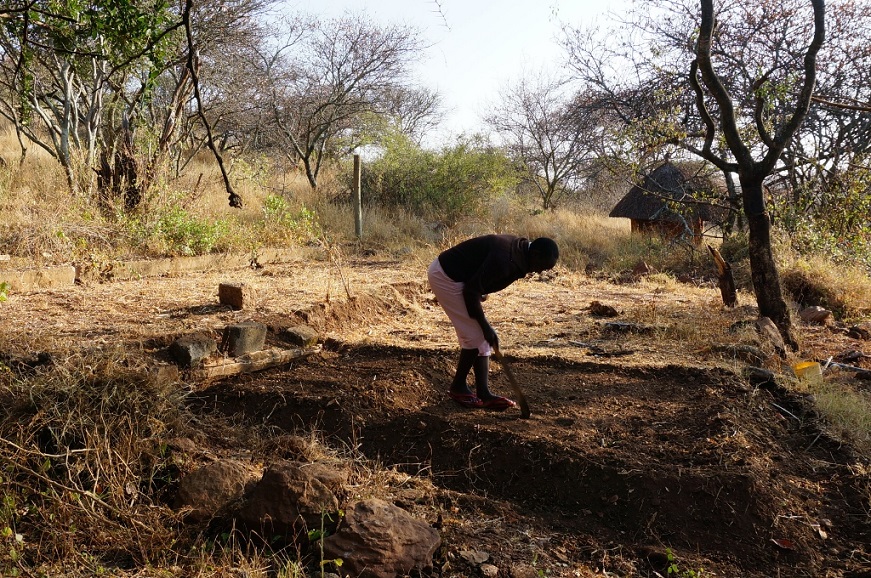When I started this post a couple of days ago, we had two staff, Rehema and Jane. Now we have one. Jane left. Not sure what happened: the location is too isolated maybe, we hired her as a gardener and she didn’t want to garden, the elephant pushing over the tree and trampling the garden last night was too much for her… who knows. When we returned from work today, Jane and all her belongings were waiting to be driven to Isiolo. John is off doing that now.
When we took this assignment, we knew that providing jobs to people was important and expected of us. Though the extent of our experience with domestic help was limited to an occasional four hour-per-week house cleaner, we resolved to do our part.
Osman, our NRT logistics officer, recommended Rehema as a housekeeper. She’s a “good person,” he said whom he’d known for a long time. Rehema showed up at headquarters the next day, neatly dressed in a long skirt, sweater and head scarf. She sat next to Osman, across from us at a picnic table, eyes downcast and mumbled polite answers to our questions. “Yes” she wanted the job. She had been earning 450 Kenyan shillings a day ($5.35), but “anything you want to pay me would be fine. Will you be OK living in a remote location? “It’s OK, no problem.” Can you cook? “A little, I want to learn.” We squirmed as interviewers. Rehema squirmed as the interviewee. A few hours later the office manager decided, correctly, we’d done a lousy job with the interview and she feared we might have been hoodwinked. She then interviewed Rehema. Eventually everyone gave Rehema the thumbs up and the hiring process was complete.
When Rehema discovered we were considering hiring a second person for a gardener, she, of course, had a friend. That was Jane. Jane is 19, went to school through grade 8, seemed friendly and outgoing and spoke remarkably good English correctly throwing around words like “sibling,” “raptor,” “female circumcision,” and “erosion control.” We hired her. She lasted a week, we think. She may return.
Back to Rehema: Rehema is 24. She was married, had two kids and then left her husband because he was “no good”. Her children are 7 and 3 1/2. She lives with her sister in Isiolo, a town about 25 km north of the gate. She sees her kids 4 days a month; which is the number of day’s a Kenyan laborer receives off in a month. Rehema went to school through “Form 3” which is the 11th grade and then had to stop because of her home situation. She is the sole wage earner among her sister and their 5 combined children.
Rehema’s job is defined as “house keeper.” She seemed to know what that meant, so we pretty much let her define her own job description. Based on what she does during the day, “house keeper” includes cleaning the house, doing the laundry, cooking breakfast and dinner, doing the dishes and setting and lighting the evening fire. When we come home from work, the house is spotless, laundry is folded neatly on the dressers, the table is set for dinner with the napkins fancy folded in the center of the placemats and a very neat fire has been laid in the fireplace. Dinner is ready about 7 pm (Rehema has a real talent for cooking). The fire is lit and our beds turned down as we eat dinner.
For this Rehema receives 15,000 Kenyan shillings, or $178 a month. According to the people at the office, this is a “more than fair” salary. We provide the lodging (a 10X10 foot room with a bed, a table, a chair and a single light bulb), food and pay her taxes. She has full access to the kitchen and is welcome to eat whatever she cooks for us. Mostly, though, she eats different things – lots of rice, maize porridge, and very sweet, milky tea. She is Muslim and doesn’t eat pork. For transportation, one of us will take her to the gate and she will take a “matatu” (a public minivan outfitted to take 14 passengers) from there.
The low wages are difficult for us to take, but it is clear that we need to conform to local norms. We want to be sensitive to boundary conditions between employer and employees as well as cultural differences between the way Kenyans work and Americans work. These are daily challenges. We will learn.



It is hard to conform, when your heart is aching for the people, to only see her children so little and to work for so little. Maybe she can be helped in other ways, like continued education or something. Rehema photographs beautifully.